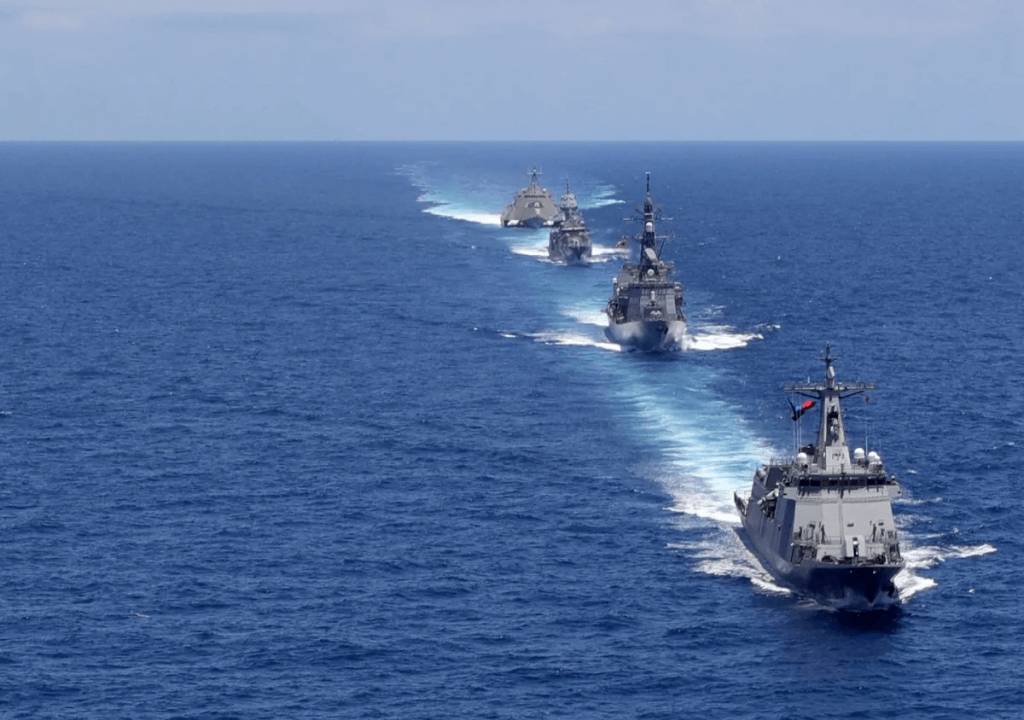While western Asia is gripped by the fear of war, with Israel and Iran launching attacks against each other, Philippine and US forces will carry out their first-ever military exercises along the edge of South China Sea waters, outside their territorial waters. This action is poised to provoke China and deepen the crisis in the South China Sea and East Asia. Even though there is no issue with conducting military drills in international waters, and the Philippines and the US being long-time allies, it will undoubtedly represent a significant setback for China, a nation asserting claims over the South China Sea and striving to control regional politics. While it may resemble high school bullying, it underscores the imperative for countries to steer clear of further conflicts, as people suffer from the effects of ongoing wars.
The annual military drills, known as Balikatan or “Shoulder-to-Shoulder” drills, are scheduled to take place from April 22nd to May 10th this year, with the participation of 16,700 soldiers. The program involves simulations of retaking enemy-occupied islands in areas facing Taiwan and the South China Sea, potentially sending a message to China. This year’s military drills are notable for the inclusion of the Philippine Coast Guard for the first time, reflecting their increasing involvement in confrontations with China, where they have previously faced humiliation from the Chinese navy in incidents involving water cannons.
China appears to be paying close attention to this issue. Beijing continues to claim almost every inch of the South China Sea, citing historical and cultural ties to the region, despite an international tribunal’s 2016 ruling that Beijing’s expansive claims lacked legal legitimacy. Their unwavering position is supported by the strategic importance of the South China Sea to China’s political and economic hegemony. China’s aggressive actions against Philippine vessels prompted the Philippines and the US, its strongest ally, to decide to conduct the drill in the disputed waters. The Chinese foreign ministry issued a warning, stating that the Philippines should be “Sober enough to realize” that inviting other nations to demonstrate their military might in the South China Sea and provoke conflict will only heighten tensions and jeopardize stability in the region. China opposes the involvement of the United States and Japan in the South China Sea issue. During a scheduled press conference, Foreign Ministry spokesman Lin Jian stressed that “Attempts to enlist external forces to safeguard its purported security will only result in greater insecurity for itself”, urging both countries to refrain from provocations. Chinese official media also warned that such actions would have a “Destructive impact on regional security”.
The foreign ministry of the Philippines asserted that China should “Reflect upon its own actions” in the South China Sea, stating that the country’s decision to strengthen ties with the US and Japan was a “Sovereign choice”. The ministry emphasized in a statement that “The source of tension in our region is well known to all”, linking the escalation of tensions in the region to China’s aggressive behavior and excessive maritime claims, including the militarization of disputed islands. China and the Philippines have had multiple clashes, thankfully avoiding direct war like those seen in West Asia, given the unstable political climate in the region. However, there are concerns that this area would be among the first to see war if the world order continues to collapse.
The joint military drills are commonly conducted to improve communication between militaries, and this will feature bolstered support from the United States to the Philippines. Amid growing tensions with Beijing, Joe Biden promised last week to protect the Philippines from any attacks in the South China Sea during the first-ever joint summit with Manila and Tokyo. Currently, approximately 14 countries will observe the annual practice, including Japan, India, and countries from ASEAN and the EU. The military drills are going to showcase the readiness of the team to oppose China.








